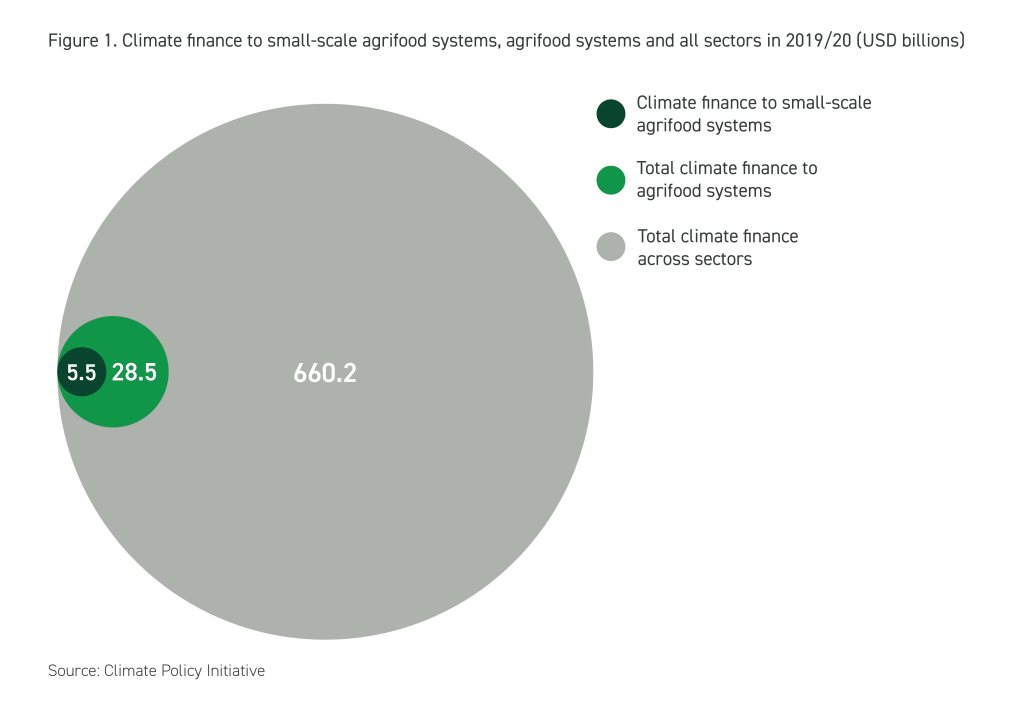Why small-scale farmers can teach us a lot about climate change
- Over $2.5 billion was pledged at COP28 to support food security while combatting climate change.
- Small-scale farmers are responsible for up to 70% of the food produced in low- and middle-income countries.
- We must listen to the needs and priorities of smallholders or risk the collapse of agricultural systems that sustain billions of people across the world.
For those of us who work with the world’s poorest farmers, COP28 in Dubai last November gave us reasons for hope. Global leaders attending the climate summit focused on the twin challenges of climate change and food security and pledged to mobilize $2.5 billion to tackle agriculture’s greenhouse gas emissions and protect the livelihoods of farmers threatened by global warming.
The declaration was hailed as a big win for smallholder farmers, who produce most of the world’s food. There are about 510 million small farms in the world. But will the pledged funds follow the political declarations and reach those most in need? And will the money go to the right people?
Small-scale farmers are responsible for up to 70% of the food produced in low- and middle-income countries. But they often lack the resources to get ahead, including access to finance, markets, fertilizers, seeds, electricity and data. In 2023, the Climate Policy Initiative (CPI) estimated that only $5.5 billion – or 0.8% of climate finance – went to small-scale farmers and micro, small and medium size agri-food companies even as climate funding rose for other sectors such as transportation and energy production.
Holding the key to protecting food supplies
The lack of climate financing for smallholders is deeply troubling. It is proof that too little is being done to ensure a just climate transition for farmers and to protect the world’s food supplies. Even if all of the additional $2.5 billion pledged at COP28 went to the poorest farming communities, they would still be getting less from climate finance than six years ago. Not only will this imperil food supply but also our planet: we know that small farmers are far more likely to save, protect and regenerate biodiversity than large, mono-crop plantations. They are the ones that employ techniques that are regenerative, are agro-ecologically safe and are nature-based.

Top-down solutions rarely work – just ask any scientist working to improve crops. After decades of lab work, too many new varieties end up being rejected by farmers or consumers. They might be pest-resistant, but take too long to cook, or drought-tolerant, but require expensive fertilizers. That’s why scientists are putting farmers at the centre of their research efforts. The Consultative Group on International Agricultural Research (CGIAR), the world’s largest agricultural innovation network and a partner that the International Fund for Agricultural Development (IFAD) has funded extensively for improved seeds interventions, is creating country and crop-specific “design teams” that include scientists, small-scale farmers, government agencies and others with a stake in hybrid seed development. So far, the initiative has taken hold in 15 countries across eastern and southern Africa.
Understanding farmers’ priorities
Farmers’ organizations, too, are vital for articulating and finding solutions for the needs of smallholders. IFAD partners with farmers’ organizations in the poorest regions of the world. It relies on small-scale farmers, artisanal fishers, and pastoralists’ groups to understand their priorities, such as where climate finance is most needed and what is standing in their way in accessing fair prices. Since IFAD’s establishment, farmers have been crucial partners in its work towards equitable and effective food systems. Farmers and producer organizations are also a key way in which IFAD-supported farmers are able to get competitive market prices and negotiate with off-takers.
For example, in Sri Lanka, where smallholders produce most of the country’s tea and rubber, IFAD is investing in producer organizations and watershed management associations to manage climate risks. In Paraguay, it worked with local women from an association to sell their produce in the capital. And in Burkina Faso, IFAD is partnering with the rice farmers’ union to introduce sustainable farming techniques, such as agroecology.
IFAD helped set up the Farmers’ Forum, which brings together farmers’ leaders who represent millions of smallholders and rural producers from all over the world. The Forum, which has been active since 2005, is the conduit for ongoing dialogue between rural farmers’ organizations, IFAD and member states. The next global meeting of the Farmers’ Forum will take place in Rome this February.
Today, small-scale farmers feed billions of people in the developing world, but poverty, climate change and a lack of resources mean we need action to ensure this is no longer taken for granted. Never has the fate of so many depended on the most rural, small-scale farmers. It’s time we paid more attention to what they have to say.
AUTHOR
WORLD ECONOMIC FORUM
SOURCE
Originally published on weforum.org
PHOTO
© WORLD ECONOMIC FORUM/ Unsplash